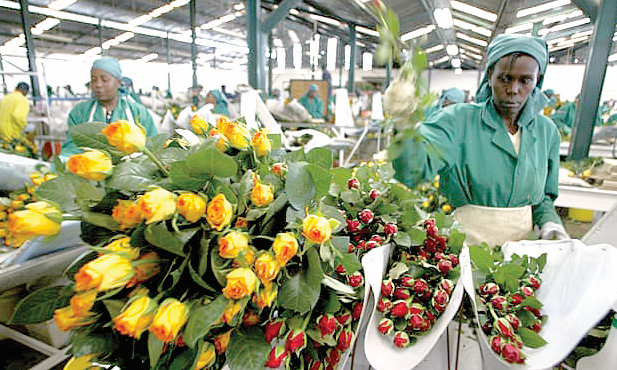Kenya’s exports to EU dip amid anxious wait for key trade deal
By Herald Aloo, January 3, 2024Kenya’s exports to the European Union (EU), the country’s second-largest trading partner, went down by Sh3.1 billion in the third quarter of 2023, making it the only trade destination that slumped compared to other key trade blocs.
This occurred even as Nairobi awaits the European parliament to ratify the long-negotiated Economic Partnership Agreement (EPA) before its enforcement kicks off thus giving Kenya tariff-free access to the EU market.
Latest quarterly data by Kenya National Bureau of Statistics (KNBS) shows that in the third quarter ending September 2023, Kenya exported goods worth Sh38.85 billion to the 27-nation bloc.
This represents a 7.4 per cent decline compared to Sh41.95 billion goods that previously reached the EU in the second quarter ending June 2023, further putting the country at risk of a widened trade deficit with the region.
Kenya’s exports to other trade blocks, such as Eat African Community (EAC), East Asia, and the Common Market for Eastern and Southern Africa (Comesa), all recorded an increase during the period.
Netherlands, the leading consumer of Kenya’s horticulture produce, accounted for the biggest decline in the Kenya-EU exports as the Dutch bought Sh18.5 billion goods from Kenya, which is Sh2.8 billion down from the previous Sh21.3 billion.
Netherlands is the largest consumer of Kenya’s cut-flowers, mainly for re-export to other EU nations, alongside avocado, tea, and coffee. Belgium, Finland, Germany, and Italy are the other EU countries that also cut their imports from Kenya, unlike France, Sweden, Spain, and Poland, which marginally sourced more from Nairobi during the period.
“The rise in earnings from exports in the third quarter of 2023 was largely boosted by increased domestic exports of tea and horticulture,” says KNBS in the quarterly report. EU accounts for about 21 per cent of Kenya’s overall exports while selling to Kenya machinery, pharmaceuticals, and other chemicals.
The official data of Kenya’s export to the EU in the fourth quarter of 2023 is, however, expected to be higher than quarter three considering the just concluded December festivity, which is often associated with higher consumption of horticulture produce.
The balance of trade between the two sides now stands at Sh13.5 billion and is largely in favour of the EU even as the Kenya Kwanza administration tries to invest more in various value chains to increase the country’s export levels.
On December 18, Kenya signed EPA, a culmination of trade talks between the EU and regional EAC bloc that commenced almost a decade back.
The EPA deal, the first broad trade deal between the EU and an African nation since 2016, will give Kenya tariff-free access to the EU market, while European goods will receive progressive tariff reductions.
“This agreement will also contribute to sustainable and fair economic growth, bringing new opportunities for companies to the benefit of both our people. It includes the strongest social and climate commitments of any EU trade deal with an African country,” President of the European Commission, Ursula von der Leyen, said in December.
EU disclosed that the agreement includes a special safeguard for agriculture, food security, and infant industry. It also entails a dedicated chapter on economic and development cooperation aimed at enhancing the competitiveness of the Kenyan economy. EPA negotiations with EAC were concluded in 2014, but its implementation has dragged on since not all EAC partner countries have been comfortable ratifying the deal.
This forced Kenya to make individual agreements with the EU, which is pursuing stronger economic ties with Africa through Nairobi to counter China’s ties with the continent that has thrived through trade and infrastructure investment.
Kenya’s exports to China declined to Sh4.9 billion in the third quarter but imported goods worth a massive Sh119.7 billion from the Asian country, mainly machines. The Council of the EU last month adopted a decision on the signing of the EU-Kenya Economic Partnership Agreement, which will boost trade in goods and create new economic opportunities, with targeted cooperation to enhance Kenya’s economic development.
“This agreement brings us closer to Kenya, and it brings Kenya closer to us. Kenya is considered the economic hub of East Africa and the opening of new areas of co-operation will translate into mutual benefits for our workers, businesses and traders. The agreement includes a shared commitment to sustainable development, including labour rights, the environment and climate action,” said José Manuel Albares, Spanish Minister of Foreign Affairs, European Union and Cooperation.
This agreement will provide duty-free, quota-free EU market access to all exports from Kenya as soon as it enters into force, as well as partial and gradual opening of the Kenyan market to imports from the EU.
